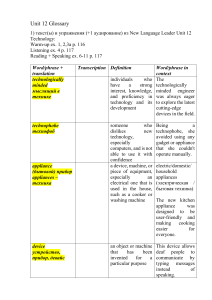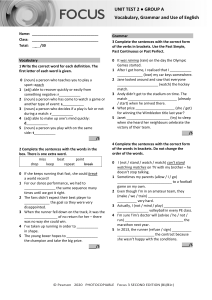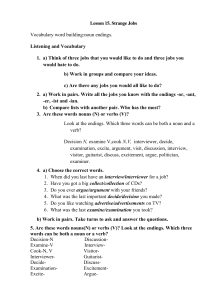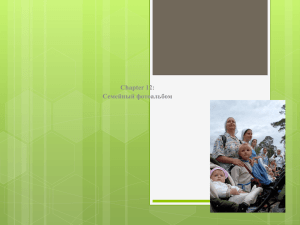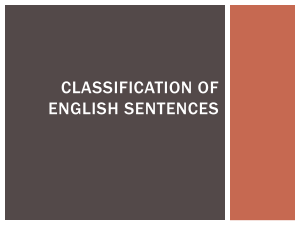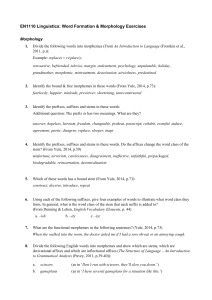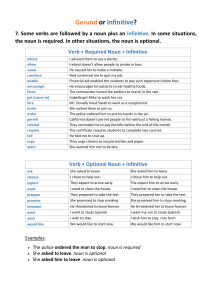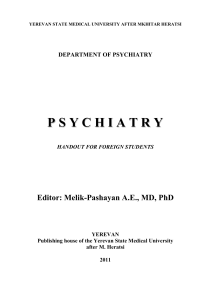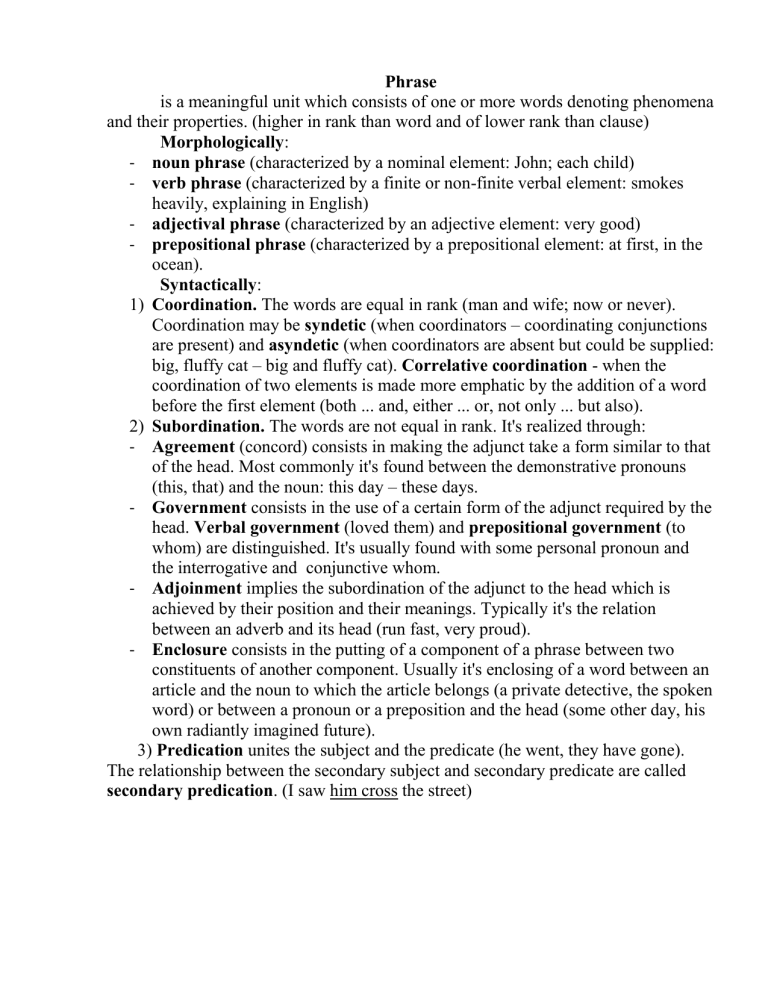
Phrase is a meaningful unit which consists of one or more words denoting phenomena and their properties. (higher in rank than word and of lower rank than clause) Morphologically: - noun phrase (characterized by a nominal element: John; each child) - verb phrase (characterized by a finite or non-finite verbal element: smokes heavily, explaining in English) - adjectival phrase (characterized by an adjective element: very good) - prepositional phrase (characterized by a prepositional element: at first, in the ocean). Syntactically: 1) Coordination. The words are equal in rank (man and wife; now or never). Coordination may be syndetic (when coordinators – coordinating conjunctions are present) and asyndetic (when coordinators are absent but could be supplied: big, fluffy cat – big and fluffy cat). Correlative coordination - when the coordination of two elements is made more emphatic by the addition of a word before the first element (both ... and, either ... or, not only ... but also). 2) Subordination. The words are not equal in rank. It's realized through: - Agreement (concord) consists in making the adjunct take a form similar to that of the head. Most commonly it's found between the demonstrative pronouns (this, that) and the noun: this day – these days. - Government consists in the use of a certain form of the adjunct required by the head. Verbal government (loved them) and prepositional government (to whom) are distinguished. It's usually found with some personal pronoun and the interrogative and conjunctive whom. - Adjoinment implies the subordination of the adjunct to the head which is achieved by their position and their meanings. Typically it's the relation between an adverb and its head (run fast, very proud). - Enclosure consists in the putting of a component of a phrase between two constituents of another component. Usually it's enclosing of a word between an article and the noun to which the article belongs (a private detective, the spoken word) or between a pronoun or a preposition and the head (some other day, his own radiantly imagined future). 3) Predication unites the subject and the predicate (he went, they have gone). The relationship between the secondary subject and secondary predicate are called secondary predication. (I saw him cross the street)
